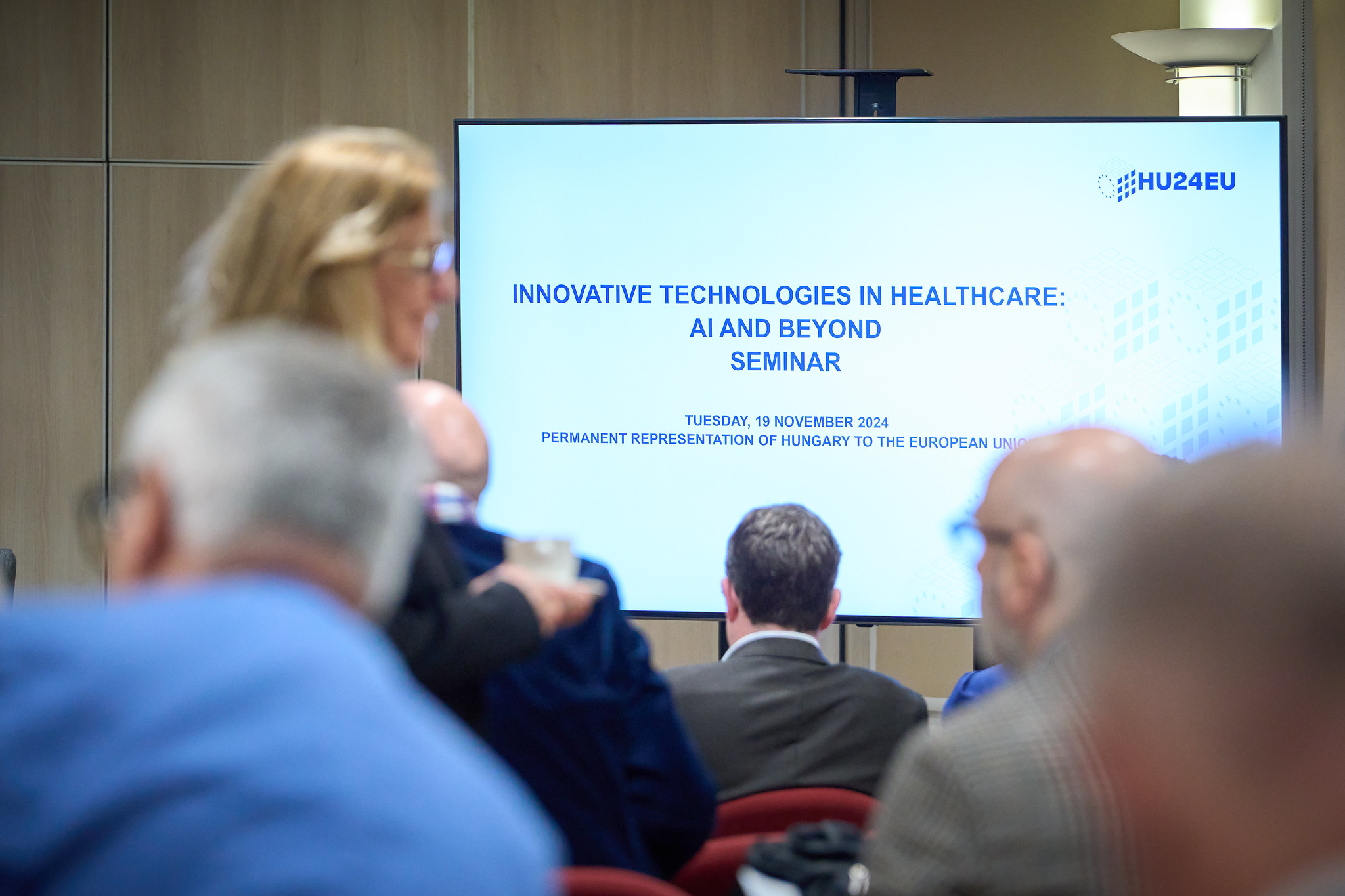On 19 November 2024 our Director, Dr. Miklós Szócska was invited to speak at the seminar entitled “Innovative Technologies in Healthcare: AI and Beyond” hosted by the Hungarian Presidency of the Council of the EU 2024, held at the Permanent Representation of Hungary to the European Union in Brussels.

Dr. Miklós Szócska was mentioning about the event the following:
„The digital health week and the Brussel AI conference of the Hungarian Presidency (“Innovative Technologies in Healthcare: AI and Beyond”) clearly showed that data driven health (DDH) and artificial intelligence in health is a system capability! Use cases of our Data Driven Health National Laboratory Division also show that these USE CASES are ALL PART OF THE SAME PUZZLE. Health services in Europe should dinamically follow the path of the digital transformation journey.
Health services in Europe should dinamically follow the path of the digital transformation journey. Along this journey we will be able to move:
– From health data footprints in data silos to patient pathways optimization.
– From Administrative health data silos and passive collection of health records to proactively signaling and offering predictions for both patients and professionals.
– From single purpose clinical decision support algorithms to an assembly line and a complex portfolio of diagnostic automations and therapeutical targeting
– From an analysis of cognitive insights to complex decision support tools and ai based system optimization
We also have to realise that:
– DDH and AI in health is not a startup with a kalvaria of approval and system scale up, but a complex portfolio of generally accessible applications
– DDH and AI in health is not an endless and sustainable payment list of licence subscriptions but interal capability of health care systems
– We should move forward on this road!
– Countries with system capability conditions have to unite their forces and EU strategic investments should support this moon shot for eu competitiveness and the sustainability of our solidarity based healthcare systems.”



